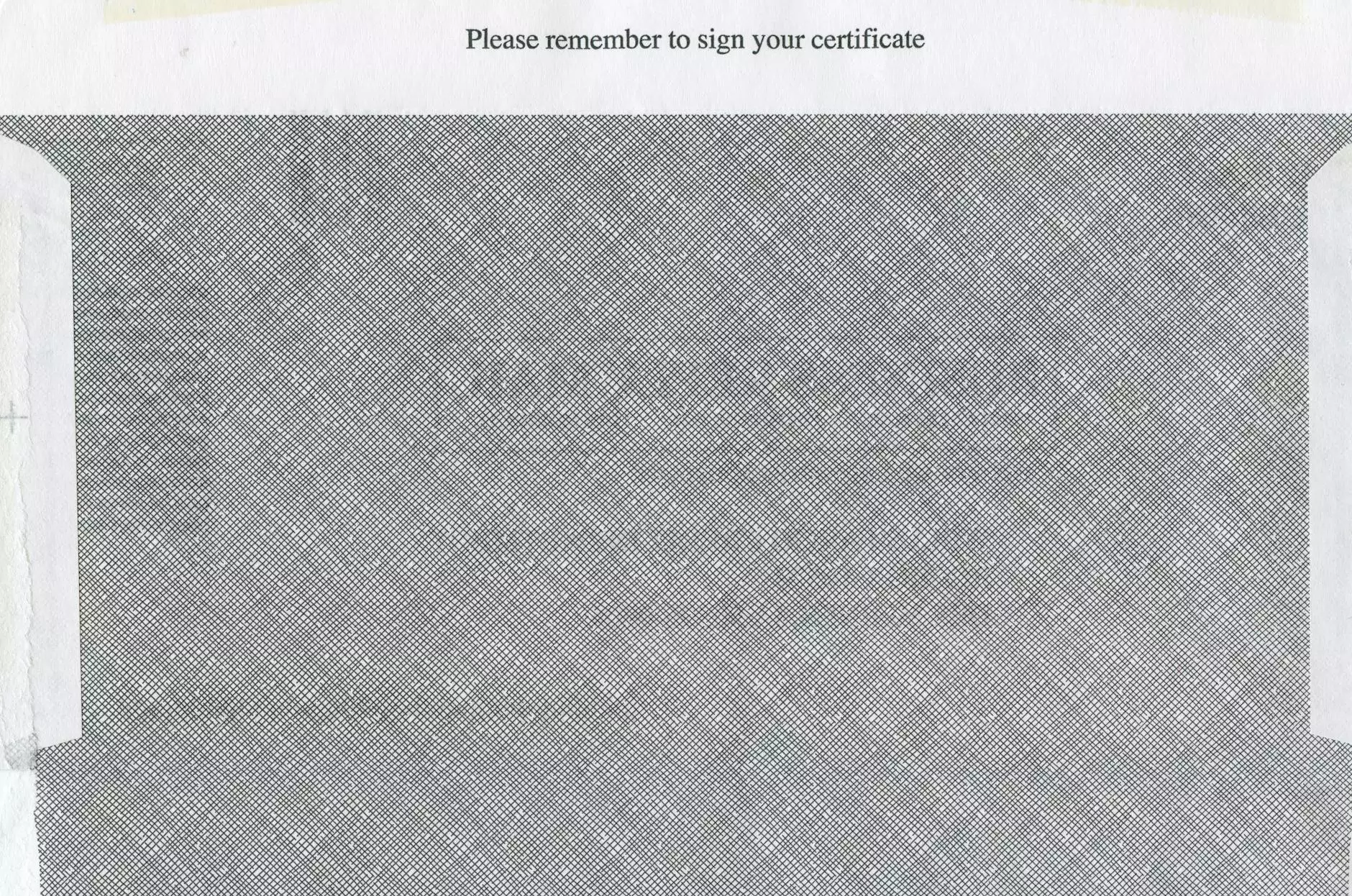Mastering Data Privacy Compliance: Essential Insights for Modern Businesses

In today's digitally driven landscape, businesses face increasing scrutiny regarding data privacy compliance. As organizations collect, store, and process vast amounts of data, understanding how to navigate the complexities of data governance has never been more critical. This article delves into the nuances of data privacy compliance, highlighting best practices and strategic approaches that can enhance your business operations while safeguarding sensitive information.
Understanding Data Privacy Compliance
Data privacy compliance refers to the legal framework that governs how personal data is collected, utilized, and protected. Regulations such as the General Data Protection Regulation (GDPR), California Consumer Privacy Act (CCPA), and others set stringent requirements on businesses that handle personal data. Non-compliance can lead to hefty fines, legal consequences, and a tarnished reputation.
Importance of Data Privacy Compliance
Implementing robust data privacy practices is not merely about adherence to laws; it cultivates trust between businesses and customers. Here are key reasons why data privacy compliance is paramount:
- Building Customer Trust: Transparent practices foster confidence among customers, encouraging them to engage with your brand.
- Avoiding Legal Penalties: Non-compliance can result in significant fines, up to 4% of annual global turnover under GDPR.
- Enhancing Business Reputation: Organizations known for stringent data protection measures attract more clients and partners.
- Streamlining Operations: A well-defined compliance framework can lead to better internal data management and operational efficiency.
Key Components of Data Privacy Compliance
To achieve compliance, businesses must focus on several fundamental components:
1. Data Inventory and Classification
Identifying and classifying the types of data your organization collects and processes is the first step. Maintaining a comprehensive data inventory allows you to:
- Understand what personal data you have.
- Determine where data is stored.
- Assess the data’s sensitivity and proper handling procedures.
2. Privacy Policies and Procedures
Developing clear, detailed privacy policies is essential. These policies should cover:
- How personal data is collected and used.
- Data retention periods.
- How users can access their data and request deletions.
3. Employee Training and Awareness
Regular training on data privacy compliance is crucial. Employees should be well-informed about data handling practices, the importance of compliance, and the potential implications of breaches.
4. Implementing Robust Security Measures
Ensure that strong technical and organizational measures are in place to protect data from unauthorized access and breaches. These measures may include:
- Encryption
- Access controls
- Regular security audits
5. Data Subject Rights Management
Compliance also involves respecting the rights of data subjects (individuals whose data is being processed). This includes:
- The right to access their data
- The right to rectify inaccuracies
- The right to erasure (the right to be forgotten)
Regulations Governing Data Privacy Compliance
Understanding the various regulations that necessitate data privacy compliance is vital for your business's success. Below are some of the most significant regulations:
General Data Protection Regulation (GDPR)
The GDPR is a comprehensive regulation that applies to any organization processing the personal data of EU residents. Key implications of GDPR include:
- Consent: Businesses must obtain explicit consent from users before processing their data.
- Data Portability: Individuals can request their data in a structured format for transfer to other organizations.
- Data Protection Officer (DPO): Organizations that meet certain criteria must appoint a DPO to oversee compliance efforts.
California Consumer Privacy Act (CCPA)
The CCPA grants California residents rights over their personal data and holds businesses accountable for transparency. Businesses must:
- Inform consumers about the data being collected and its purpose.
- Provide mechanisms for users to opt-out of data selling.
Health Insurance Portability and Accountability Act (HIPAA)
For businesses in the healthcare sector, HIPAA provides stringent guidelines on safeguarding protected health information (PHI). Compliance involves:
- Mitigating risks through administrative, physical, and technical safeguards.
- Ensuring proper handling of medical records and patient information.
Steps for Achieving Data Privacy Compliance
While the task may seem daunting, following a structured approach can simplify compliance efforts.
1. Assess Your Current Data Handling Practices
Begin with a thorough audit of how your organization currently collects, processes, and stores data. Identify gaps against compliance regulations.
2. Develop a Compliance Strategy
Create a detailed plan outlining how your organization will meet data privacy compliance requirements. Assign roles and responsibilities to ensure accountability.
3. Implement Technical Solutions
Invest in modern technologies that simplify compliance. This includes data encryption tools, compliance tracking software, and cybersecurity enhancements to protect sensitive data.
4. Monitor and Review
Establish a process for continuous monitoring of your compliance practices and regularly update policies as regulations evolve.
5. Document Everything
Documentation is key to demonstrating compliance. Maintain accurate records of data processing activities, consent forms, training sessions, and incident reports.
The Role of IT Services in Data Privacy Compliance
In the realm of IT Services & Computer Repair, compliance can significantly influence the way technology services are delivered. A proactive approach to data governance ensures technology solutions align with compliance needs. Here’s how IT services contribute to achieving data privacy compliance:
1. Data Management Solutions
IT service firms can provide tools that help streamline data collection, ensuring processes are compliant from the outset. Solutions like data governance frameworks and secure cloud storage systems empower businesses to manage data responsibly.
2. Security Infrastructure
Robust cybersecurity systems help prevent data breaches. IT service providers can implement firewalls, intrusion detection systems, and continuous monitoring to safeguard sensitive information.
3. Compliance Audits
Regular audits conducted by IT professionals help organizations assess the effectiveness of their compliance efforts and identify areas for improvement.
Future Trends in Data Privacy Compliance
As we look toward the future, here are some trends that will shape the landscape of data privacy compliance:
1. Increased Regulatory Scrutiny
Governments and regulatory bodies are expected to continue tightening data protection laws. Organizations need to stay updated to ensure compliance.
2. Growth of Privacy-Enhancing Technologies
The development of technologies designed to enhance privacy, such as anonymization and encryption tools, will aid businesses in complying with regulations effectively.
3. Global Standardization of Regulations
As businesses operate globally, there is a push for harmonizing data privacy laws across borders to streamline compliance efforts.
Conclusion
In conclusion, mastering data privacy compliance is indispensable for today's businesses. By understanding the regulations, implementing robust strategies, and leveraging IT services effectively, organizations can protect their data assets while building trust with consumers. As the data landscape continues to evolve, staying proactive in compliance efforts will not only safeguard your organization but also position it competitively in an increasingly cautious marketplace. At Data Sentinel, we are equipped to guide your business in navigating the complexities of data privacy compliance, ensuring that your operations are both efficient and secure.







